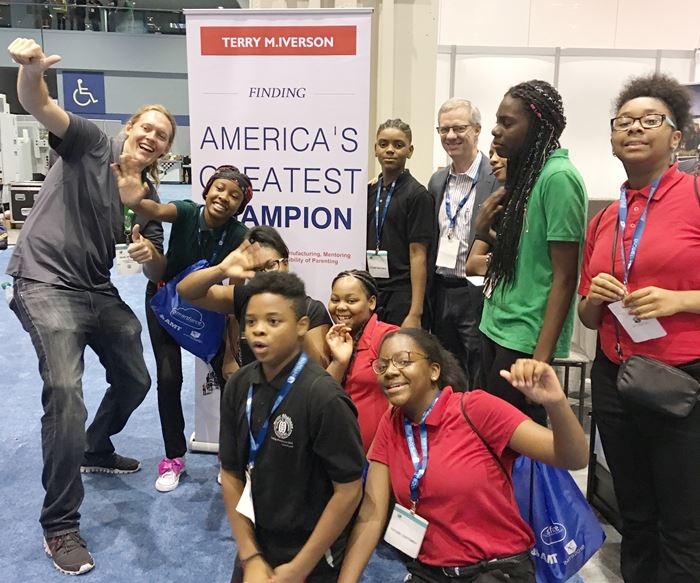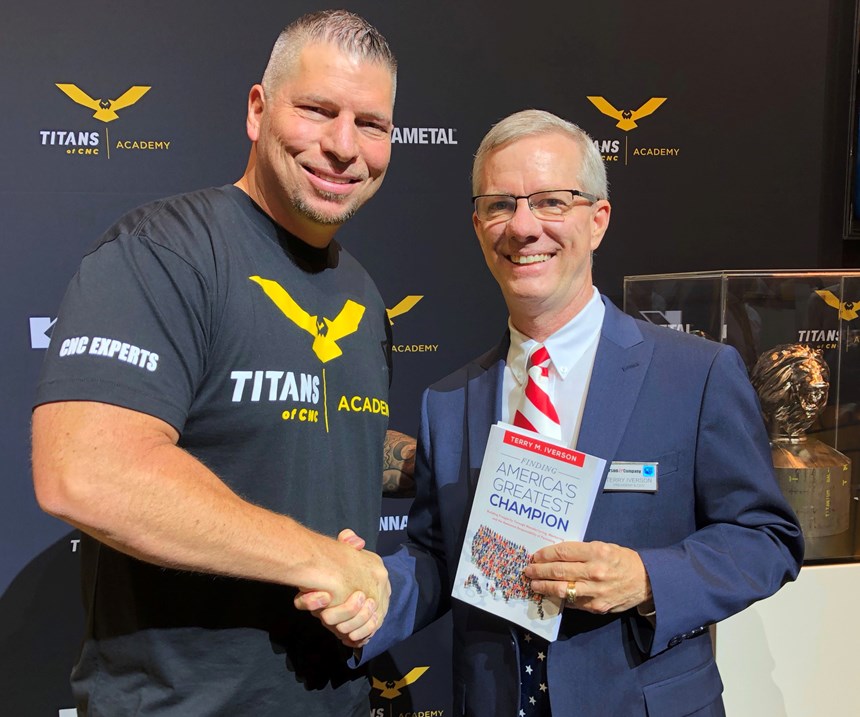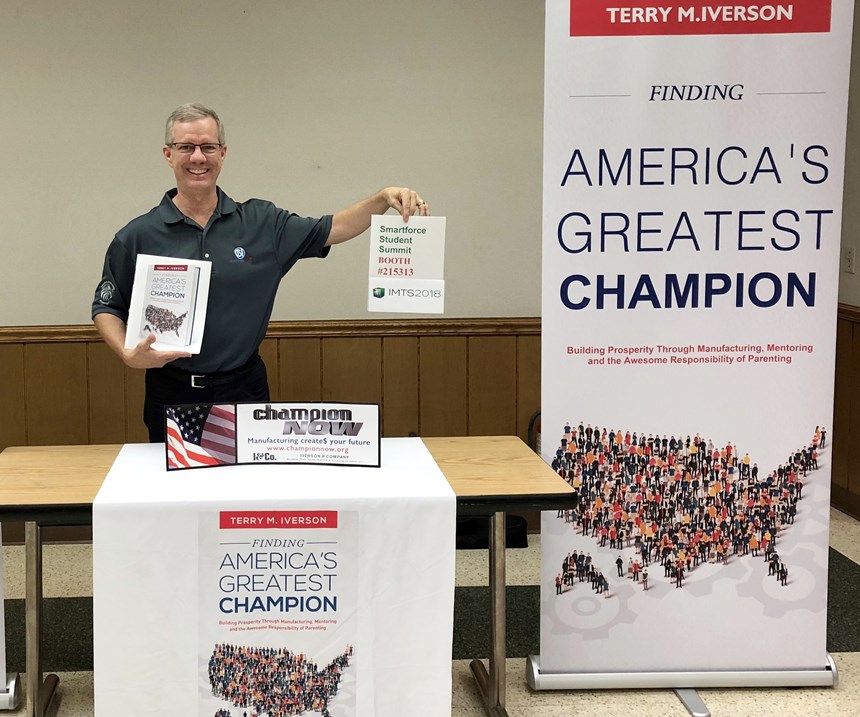Be a Champion for Manufacturing
Terry Iverson, president of Iverson and Company and founder of ChampionNow!, is working to change the perception of manufacturing in the United States by writing a book for parents, mentors and educators. The goal is to highlight the quality manufacturing career opportunities that are available to today’s youth.
Share






Autodesk, Inc.
Featured Content
View More


Takumi USA
Featured Content
View More“Nobody truly understands the opportunities available in manufacturing. To do that, you need to look at the entire picture,” says Terry Iverson, president of Iverson and Company (a machine tool distributor and rebuilder in Des Plaines, Illinois) and founder of ChampionNow!, an acronym that stands for “Change How American Manufacturing’s Perceived In Our Nation.”
I sat down with Mr. Iverson in the Smartforce Student Summit during the International Manufacturing Technology Show (IMTS) in September to talk with him about his new book, “Finding America’s Greatest Champion: Building Prosperity through Manufacturing, Mentoring and the Awesome Responsibility of Parenting.” The book includes interviews with more than 40 professionals, including corporate leaders, athletes, politicians, manufacturers, educators, parents and more, to share their thoughts on topics such as mentorship, parenting and the importance of manufacturing in the United States. Largely, the book is designed to paint the picture of what opportunities are available to today’s youth.
In his book, Mr. Iverson cites that the United States manufactures approximately 1/5 of the world’s goods. Given that number, he contends that manufacturing in the United States isn’t dead, rather the opposite. And since the average age of someone in manufacturing is 50+, he writes that over the next decade, nearly 3.5 million manufacturing jobs will likely be needed. However, 2 million are expected to go unfilled due to the skills gap.
During our conversation, I asked him what happened to the manufacturing funnel that has supplied our industry with skilled employees. He says the three problems that led to the skills gap are 1) apprenticeships went away, 2) educators teach kids to take tests instead of to solve problems and 3) the computer numerical control changed our culture in that a different skillset is necessary to operate today’s advanced machines.
While the skills gap may appear to be a bleak challenge for the manufacturing industry, Mr. Iverson sees it as a lucrative opportunity for today’s youth. If we can solve the student-debt crisis and synchronize education’s deliverables with the manufacturing industry’s skills needs, good-paying jobs can be matched with young people who want to work, he says.
In a recent article he wrote for sister publication Production Machining, Mr. Iverson says, “The message is clear. We all need to get involved. It is what our country needs in order to solve the skills gap for our manufacturers. At this time, we have a reshoring movement under way with work coming back here, but where are the people to fill our factories and do the work that has come back to the U.S.?”
Mr. Iverson says we have these people if we can change the cultural perception of manufacturing in this country by making working hard with your hands and mind cool again. The 300-page, 14-chapter book that debuted at IMTS offers suggestions designed to empower and inspire the next generation of skilled workers. It can be ordered online at championnow.org or via Amazon.
Related Content
-
Solve Worker Shortages With ACE Workforce Development
The America’s Cutting Edge (ACE) program is addressing the current shortage in trained and available workers by offering no-cost online and in-person training opportunities in CNC machining and metrology.
-
Addressing the Manufacturing Labor Shortage Needs to Start Here
Student-run businesses focused on technical training for the trades are taking root across the U.S. Can we — should we — leverage their regional successes into a nationwide platform?
-
The Power of Practical Demonstrations and Projects
Practical work has served Bridgerland Technical College both in preparing its current students for manufacturing jobs and in appealing to new generations of potential machinists.









































